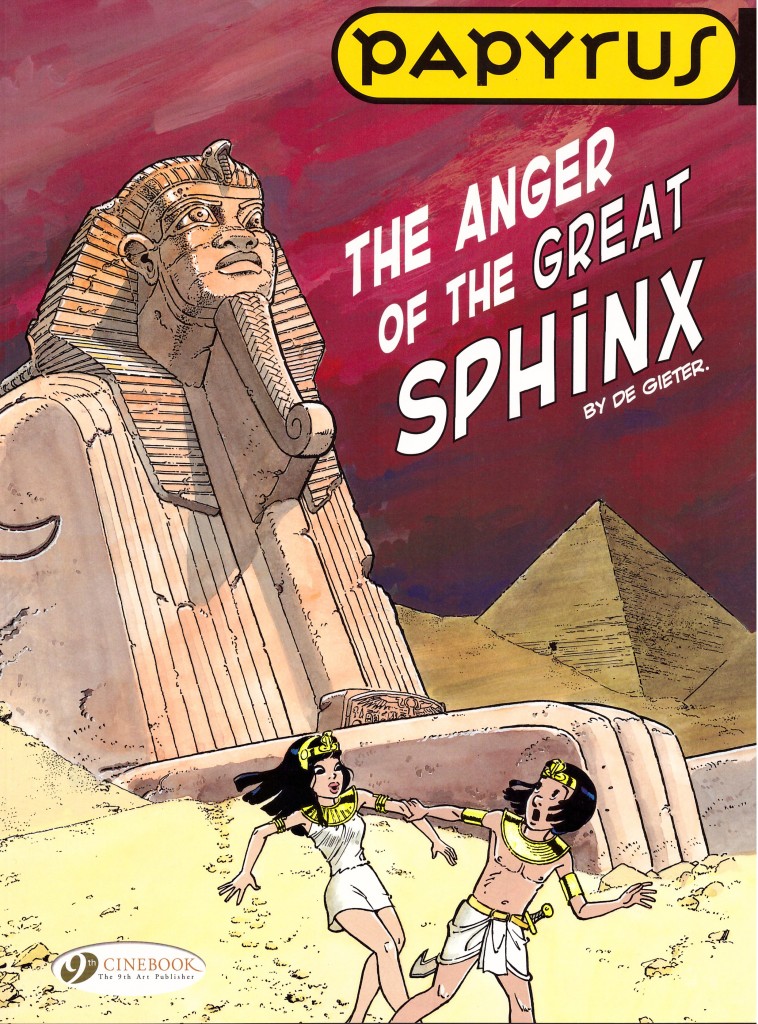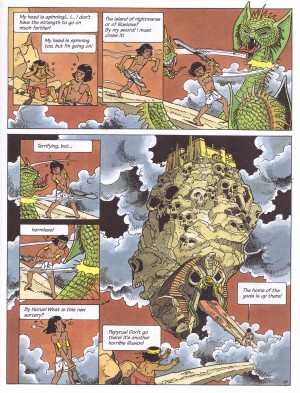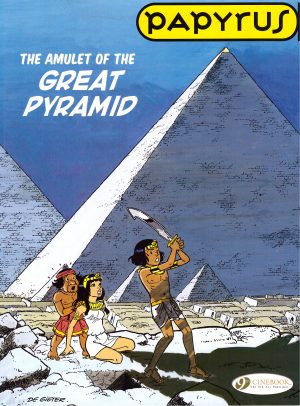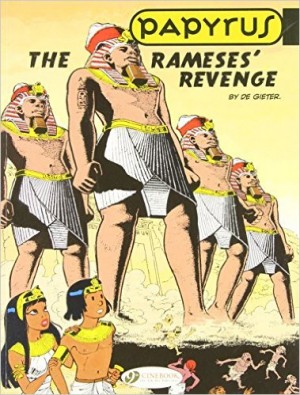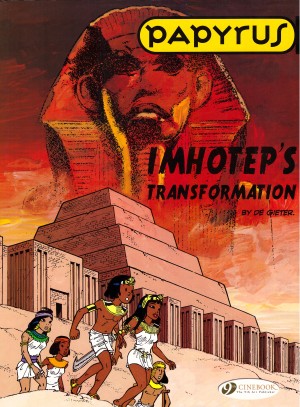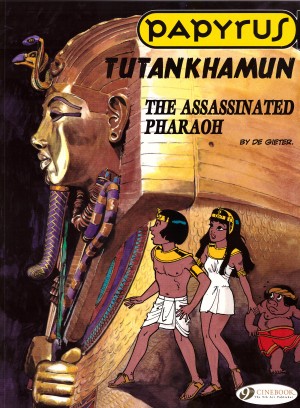Review by Karl Verhoven
As well as providing a crash course in the methods and lifestyles of the Egyptian court, Lucien De Gieter’s unafraid of incorporating the beliefs of the time as literal. The Papyrus books have their share of charlatans, but also stories involving the interference of the gods in a very direct manner. It’s not every citizen who’d dare to question them, never mind defy them, so Papyrus is exceptionally brave early on in actually taking confronting a God in a sword fight. Of course, it helps when you have a magic sword, and that sword becomes an issue when the life of the Pharaoh’s daughter Theti-Cheri is at stake.
The plot is set in motion by the anger of the Sphinx as mentioned in the title. He made an agreement with the Pharaoh’s ancestors that he’d protect their descendants if they ensured his statue was never enveloped by the desert sands. Those descendants haven’t been doing a good job, and if Papyrus is to save Theti-Cheri then he must convince the Gods to intervene.
Unusually for a children’s book, much of the book deals with the effects and eccentricities of old age. Papyrus and his friend Puin meet the guardians of the sphinx, and De Gieter’s plot takes several unusual turns both before and after this meeting. There’s a near hallucinogenic experience on the aptly named Isle of Nightmares, and the problem at the heart of the book is solved in an uplifting fashion.
The Anger of the Great Sphinx is a very episodic plot, but one that connects logically, and, as always, De Gieter’s art is detailed and accessible for the intended readership. Papyrus proves once again that he’s the very epitome of virtue and bravery – “I conquered the wind! If I have to I’ll conquer the waves as well” – and everything is as it was by the book’s end. Another job well done.
